|
Introduction
Geriatric psychiatric disorders usually occur in the context of medical illness, disability, and psychosocial impoverishment. Preliminary evidence suggests that psychotherapy can reduce not only psychopathology but also physical complaints, pain, and disability and that it can improve compliance with medical regimens. Psychotherapy has been found effective in treatment of depression related to bereavement and caregiver burden. “Life doesn’t count for much unless you’re willing to do your small part to leave our children- all of our children- a better world. Even if it’s difficult. Even if the work seems great. Even if we don’t get very far in our lifetime.” – Barack Obama, President of the United States.
INTRODUCTION: CHILDLINE is a national, 24 – hours, free, emergency telephone helpline service for children in need of care and protection. The CHILDLINE number 1098 is a toll free number that is common in all the cities of India. Initially started in Mumbai in June 1996, CHILDLINE is currently operational in 83 cities. CHILDLINE aims to reach out to the most marginalised children and provides interventions of shelter, medical, reparation, rescue, death related, sponsorships, emotional support and guidance. So if you see a child in distress, call 1098! (The article is based upon secondary review and experience accumulated while working as faculty supervisor for MSW field work training programme at Dept. of Social work, Walchand College of Arts and Science, Solapur, Maharashtra. The paper attempts to explore issues/barriers in the supervision process which impacts on the empowerment of field work training in social work education at the same time it also has suggested some recommendation to overcome the issues/barriers involved in supervision process. )
Key Words: Supervision, Field Work Training, Empowerment, Social work Education, “Field work supervision teaches the students to integrate theory and practice in the field. It creates an environment in which professional skills for social work practice can be learnt” Dr. I. S. Subhedar Introduction:-
Old Age and disabilities of old people has never been a problem for India where a value based Joint Family system is still prevailing in many parts. The Indian culture is respectfully supportive to the elders. In the background the abuse of elders has never been considered as a problem in India. It has always been thought as a western problem. However, the coping capacities of the younger and older family members are now being challenged. The School (MSSW) contributed a lot to my learning and moulding; but it never appealed to me as an institution even in 1979 when I joined the PGDPM programme, because of the strange ways of its management. Whatever contribution it made to my personality came from my teachers: Prof. T.K. Nair (Krishnan Nair), Mr. PTK Panicker (Tata Steel-XLRI), Mr. C. Sarat Chandran (Fellow- London School of Economics) and others who strived to make an institute par excellence, despite the step-motherly treatment given to the programme. Not that the MSSW programme was any better; Prof. George despite his administrative capabilities was not much inclined to be an academician, and therefore failed to understand the prerequisites for academic excellence. The political atmosphere he created at MSSW was not conducive for academic excellence: in the selection of students and teachers perhaps there was a bias towards the establishment, whereas social work by nature must have an anti-establishment or at least a humanist slant, which I found lacking in most students, and even among teachers, with the notable exception of Prof. Nair and Prof. D'Souza.
An Introduction: Globalisation in new economy has paved way for open business and everything is measured and looked from the angle of global standard and best of best in the form of world class. This has led to lot of quality systems in technology, supply chain, banking, and finance and also in Human resource management. Talent can move anywhere and people are also mobile. To have continuous flow of business in smooth way many approvals, certifications and compliance have become need of the hour and these are subject to various and continuous audits by internal and external agencies.
Studies on ageing conclude that institutional care of the elderly is not desirable for their emotional well - being, though their basic needs of food, clothing and shelter are met by the homes for the aged. Further, such an approach for the welfare of the elderly would legitimize the segregation of the elderly from their homes and familiar surroundings. In financial terms, homes for the aged are costly propositions while the number of beneficiaries is very small. As an elder care service, institutionalization should be considered only as the last resort.
Introduction: The dynamics that we found in families are individual worth, communication, rules, and system that link the family with outside system. These dynamics are developed after birth and so changeable and correctable.
Research on resilience in families has shed light on family protective factors and family recovery factors that appear to play a critical role in promoting the family’s ability to maintain its established patterns of functioning after being challenged by risk factors and in fostering the family’s ability to recover or bounce back quickly from misfortune and family crisis. Definition of resilience: Resilience is the ability of a individual or a family to use its strengths in order to positively need life’s challenges. It involves the family’s ability to return to previous levels of functioning following a challenge or crises. ( Luthar et al 2000). Central Concepts in Family Resilience: Within the Family Resiliency framework ( Mccubbin et al 1993) resilience is viewed as involving two distinguishable but related family processes: (1) adjustment, which involves the influence of protective factors in facilitating the family’s ability ad efforts to maintain its integrity, functioning, and fulfill developmental tasks in the face of risk factors, and (2) adaptation, which involves the function of recovery factors in promoting the family’s ability to “bounce back” and adapt in family crisis situation. Who are we:
Sofia Idström, 26 years, comes from Gothenburg in Sweden. I have one bigger brother, Alex who does his PhD in chemistry, Father J.P, doctor in Chemistry, mother Ulla, social worker. I finished 12 standard in 2003 and after that I travelled India, south America, Oceania and Europe and I been working. I started my social work studies in 2008 at MidSweden University, Östersund. I love travelling, playing and listening to music, create, and photography. Reasons and objects:
Education for social work began in India in the year 1936 with the establishment of the Sir Dorabji Tata Graduate School of Social Work at Bombay (now known as the Tata Institute of Social Sciences). Much water has flown under the bridge since then. The number of professional social work educational institutions in the country has multiplied manifold, albeit in an unregulated manner. Social work which is recognized as a distinct profession in the West and other countries of the world has failed to gain professional recognition in India for various reasons, the primary being the absence of any regulatory body at the national level for standardizing social work educational and practice standards. The emerging social realities post LPG have posed fresh challenges before the social work profession, which need to be addressed by services and action for social change in the area of social development, welfare, empowerment and crisis intervention. This in turn requires an army of professionally qualified human power, with specialized knowledge and skills. The effectiveness of social initiatives for welfare, development, empowerment and their initiation through the process of enlisting the participation of all sections of the society in the overall development of the country is directly linked with the quality of human power employed in the welfare and development institutions, both governmental and non-governmental, and also in the people-oriented community-based social movements and services. Conservation measures have taken away the traditional livelihoods of nomadic tribes in Karnataka.
Implementation of the Prevention of Cruelty to Animals Act and the Wildlife Protection Act has resulted in the Qalandars and the Havadigas being denied the freedom to work with bears and snakes. AT a short distance from the world famous monuments at Hampi is the village of Hulihaidar in the fertile region of the "rice bowl of Karnataka" in Gangavathi taluk in.Koppal district. Local residents say it was an important town in the Vijayanagara Empire (1336-1646 C.E.) and the seat of a local lord. Today it is home to a semi-nomadic tribal community that tamed bears and used them for street performances. These tribal families are believed to have first settled in Hulihaidar during the Vijayanagara period. They would travel around, plying their street trade, for 10 months in a year. For the remaining two months - before and during the Islamic month of Moharram they would stay put in Hulihaidar, having grand religious and cultural celebrations with their brethren. The community is known as the Qalandars, and similar communities of Qalandars are spread across the country. (Qalandar, in Islamic terminology, usually refers to a Sufi saint, but it seems to have been used by this community historically. Sometimes it is also spelt as Kalandar.) The platinum jubilee of social work education was observed in 2011. The establishment of the Sir Dorabji Graduate School of Social Work marked the beginning of education for "professional" social work in India. Subsequently, the School of Social Work became an institute of social sciences to accomodate other courses. Starting "job-oriented" MSW and even BSW courses in colleges across the country is now common. The recent trend is the proliferation of Social Work degrees by the directorates of distance education. Who bothers about the quality of education so long as the flow of money is uninteruppted ? Yet Social Work graduates are in demand in different social and corporate sectors. Many are in lucrative positions of authority, while many others work with children, women, elderly, the differently-abled, the mentally challenged, the HIV-affected, and other disadvantaged groups enabling them to transform their lives.
“Shree” (as the Late Dr.K.V.Sridharan was fondly called by people close to him) was an excellent motivator and facilitator of learning rather than a Professor. When PhD degree holders were scarce in Indian schools of social work, he pursued his doctoral research in social work in a prestigious university in the United States. He was a rare person who chose to work in India at a time when the educated Indians preferred to migrate to America. He consciously preferred a spartan life to a life of luxury and comfort for which he had many opportunities. He was Director of the Madras School of Social Work for a brief period. Many young social workers were benefited to go to USA for training under the Cleveland International Programme for Social Workers and Young Leaders during his tenure in the United States Education Foundation in India. He never compromised his convictions. As Director of the National Institute of Social Sciences at Bangalore, he had to face the toughest challenge of his life when he had to dare the most powerful Chief Minister of Karnataka and the management of NISS to protect the autonomy of the Institute and the interests of the students.
I am happy to learn that Samaja Karyada Hejjegalu is bringing out a special issue on late Dr.K.V.Sridharan, known to his friends as Shri.
I met him in Bangalore around 1975 when I was on a rescue mission to the National Institute of Social Sciences which was in serious doldrums. There was a conflict between the management and the director, Dr.Sridharan. He gave up a prestigious and lucrative job in New Delhi and took over the post of director of the NISW, a relatively unknown outfit. He was the director of the Viswayuvak Kendra earlier. Dr.Sridharan was removed from his post of director, NISS unceremoniously. He appealed to the Association of Schools of Social Work in India (ASSWI) for intervention on his behalf. Social work educators and practitioners felt outraged at the ill treatment meted out to Dr.Sridharan. A fact finding committee was constituted by the ASSWI (K.N.George, Madras School of Social work was the president) with Fr.Sales of the Rajagiri college and myself to inquire into the complaint against the NISS and to recommend remedial measures. We made out a strongly worded report and the rest is history. Subsequent events following our report did not set right the wrongs suffered by Dr.Sridharan. He was not absorbed into the faculty of the department of social work, Bangalore University. Of course the loser is the University for not having him on the faculty along with other staff members of the NISS. From then on Shri was a freelance educator and trainer along with his wife, Dr.Uma whom he married later on in life. Dr K.V. Sreedharan was born in Crangnore (Kannanur) North Malabar District of the Madras province – as it was known before Independence. His father was a high-school teacher, popularly known as “Pai Master”. After his high-school education Sreedharan studied at Madras and obtained an M.A degree in economics with first class. Several years later he also got the M.Litt degree of Madras University. Dr Sreedharan passed out of the Tata Institute of Social Sciences in 1953, with the Diploma in Social Service Administration, specializing in Labour Welfare and Personnel Management. He joined as lecturer at the newly started Madras school of Social Work and for a brief period was its acting Director. He got ful bright Fellowship to do PhD in Social Work at the Cleveland University, Ohio, U.S.A and obtained his PhD degree in 1960. He searched for a suitable senior position in schools of social work. Not succeeding in this, he joined the United States Educational Foundation in India, as a co-ordinator of Cleveland International Youth Leadership Programme. While in Delhi, in 1963 he became the first editor of Social Work Forum, the quarterly journal of Indian Association of Trained Social Workers. He held that position for about four years, until he left for Bangalore to become the Director, National Institute of Social Sciences (Refer, Feb.2011. Social Work Foot Prints). Later he was Director, Nehru Yuwak Kendra in New Delhi for two years. He was also the Editor of Social Work Educator, quarterly journal of the Association of Schools of Social Work in India, for about two years.
School of Social Work Sabotaging Social Work
An unimaginable action from the authorities of MSSW in 1999. To terminate the MA (SW) course. South India's first school of social work tried to destroy social work education. People who took this dangerous step was a former President of the Association of Schools of Social Work in India and his associates. It is like the child trying to kill the parent. Mary Clubwala Jadhav's historic contribution and the outstanding performance of the hundreds of social work graduates of MSSW for nearly 50 years were to be undone by a reckless attempt for purely personal and other unacceptable reasons. The attempted disruptive effort was resisted by students and some former students. They succeeded in stalling the academic homicide. Some of the former students were co-opted into the Board of Management of MSSW. This period will remain the darkest period in the history of social work education in India. MSSW was founded on 5th August 1952. But it was neither a trust nor a society. In order to overcome this defect a society known as Society for Social Education and Research was formed in October 1960 under the Societies Registration act before the District Registrar and the serial number was 102 of 1960 to "take over and manage the Madras School of Social Work" besides other objectives. However, the constitution of the society suffers from serious legal infirmities. The first Governing Body of the Society consisted of 19 members.
|
Categories
All
Social Work Learning Academy50,000 HR PROFESSIONALS ARE CONNECTED THROUGH OUR NIRATHANKA HR GROUPS.
YOU CAN ALSO JOIN AND PARTICIPATE IN OUR GROUP DISCUSSIONS. MHR LEARNING ACADEMYGet it on Google Play store
|
SITE MAP
SiteTRAININGJOB |
HR SERVICESOTHER SERVICESnIRATHANKA CITIZENS CONNECT |
NIRATHANKAPOSHOUR OTHER WEBSITESSubscribe |
MHR LEARNING ACADEMY
50,000 HR AND SOCIAL WORK PROFESSIONALS ARE CONNECTED THROUGH OUR NIRATHANKA HR GROUPS.
YOU CAN ALSO JOIN AND PARTICIPATE IN OUR GROUP DISCUSSIONS.
YOU CAN ALSO JOIN AND PARTICIPATE IN OUR GROUP DISCUSSIONS.
|
|

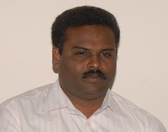
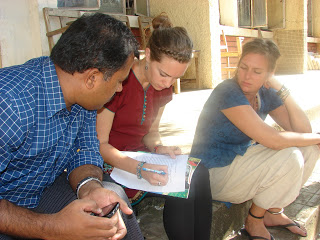
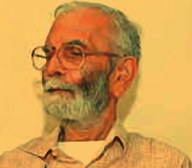
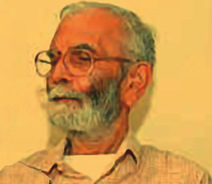
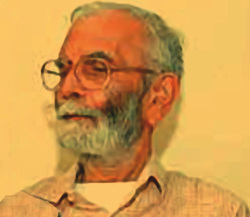





 RSS Feed
RSS Feed





